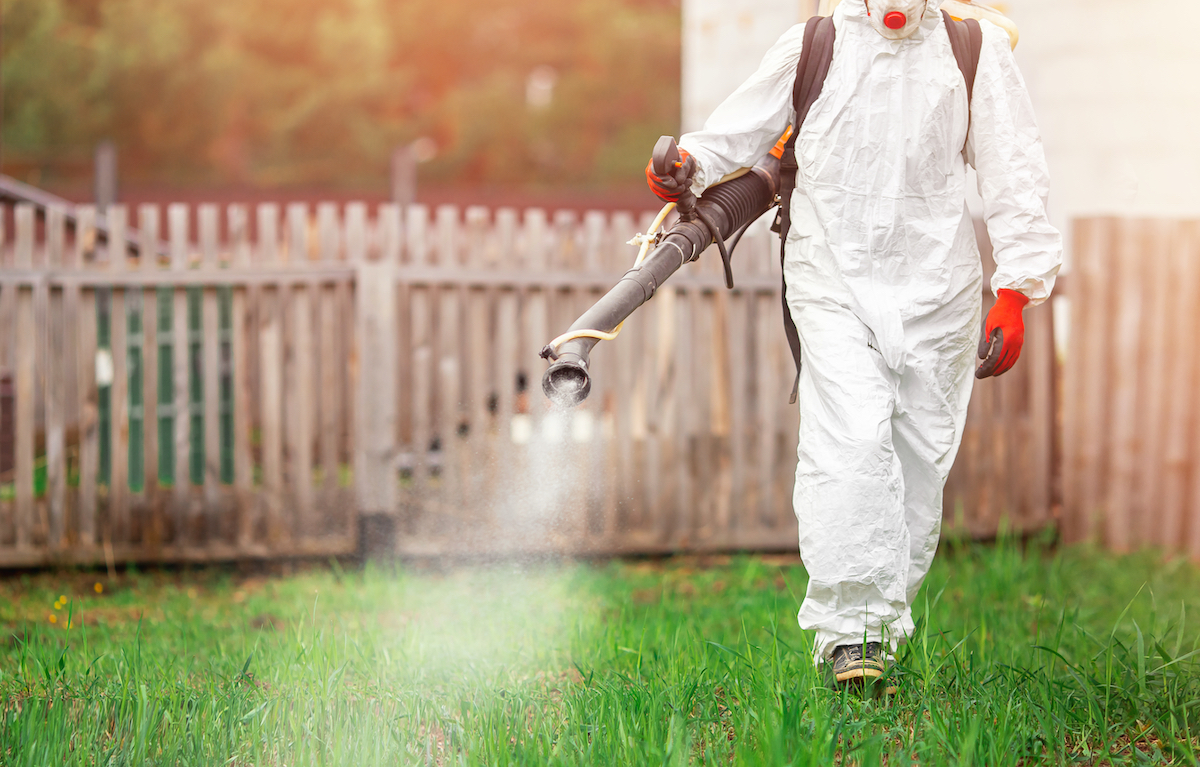Never Do This to Fight Off Mosquitoes, Local Officials Warn

Most of us will do whatever it takes to ward off pesky mosquitoes during the summer months, whether it’s applying layer after layer of insect repellent or posting citronella torches around the yard. But this persistent insect can sometimes even bypass the most trusted protection methods, which may tempt you to try new ways to guard yourself and your home from mosquitoes, especially because they’re worse than usual this year. Mosquito populations in every region of the U.S. are expected to be above average this summer due to wetter- and hotter-than-normal weather conditions, according to the National Weather Service, via Pests.org. But even if you’re desperate to rid your property of mosquitoes, the Michigan Department of Agriculture and Development (MDARD) says you shouldn’t resort to doing this one thing—and it’s a warning that extends beyond the Great Lakes. Read on to find out what they’re urging you not to do.
RELATED: If You Live Here, Prepare for a Mosquito Invasion Like You’ve Never Seen.
Don’t hire any mosquito control service off social media without looking into them first.

The MDARD released a statement recently, warning people to watch out for mosquito control scams. According to the department, an influx of mosquitoes this year has subsequently increased the number of residents turning to pesticides to combat them. But when looking for services, some consumers run the risk of hiring scammers looking to capitalize on the increased need for mosquito control services.
“Consumers should do their homework before choosing a mosquito control service, especially when those services are being advertised on social media,” Brian Verhougstraete, MDARD’s Pesticide Section Manager, warned in a statement.
Legitimate mosquito control businesses must have a pest control license.

An illegitimate mosquito control company won’t be able to provide licensing or certification. The MDARD says that businesses offering mosquito spraying, as well as other pest control services, in Michigan must be licensed by the department. And all other states have various licensing requirements for pest control as well, according to the Association of American Pesticide Control Officials. The agency says that anyone offering to “apply any method, substance or device to get rid of, avoid, repel, curb, mitigate, or control pest in homes” must have a pest control business license.
“Utilizing properly licensed and certified applicators protects public health while these professionals work to keep mosquitoes in check around your home,” Verhougstraete explained.
RELATED: And for more insect news, sign up for our daily newsletter.
They must also provide you with certain information regarding their intended services.

According to the MDARD, “consumers should be aware that pest control businesses are legally required to obtain their consent before making a pesticide application.” Not only that, but licensed businesses are also required to provide specific information about the approximate schedule, frequency, and duration of their services before administering any pesticide applications.
The company must be able to provide the name of the applicator who is performing the service, the time and date the application will be made, a description of the targeted pest to be controlled, a list of pesticides being applied, a list of the precautionary warnings or reentry restrictions on the label of the applied pesticides, and detailed information about the risk and benefits of said pesticides.
Some mosquito scammers will try to push you into signing contracts.

One of the most common pest control scams revolves around a “self-renewing contact,” says Angi, formerly known as Angie’s List, which connects consumers with vetted professionals for home services. With this type of scam, your pest control professional may claim that a single application won’t eliminate all of your pests and insist you sign an extended contract to ensure that pests are fully eradicated.
“These contracts can auto-renew year after year, whether you use them or not,” Angi warns. “Avoid this scam by refusing to sign any contract that extends beyond the service appointment. … Reputable companies should be able to explain why a second round of treatment will be necessary and they should never pressure you into signing anything.”
RELATED: If You Live in These States, Prepare for Potentially Paralyzing Mosquitoes.